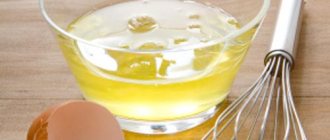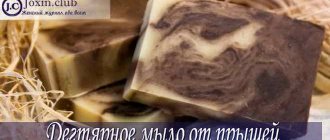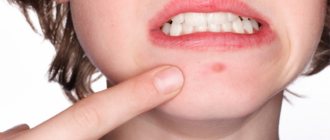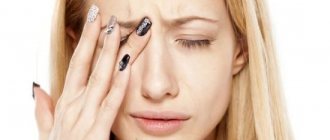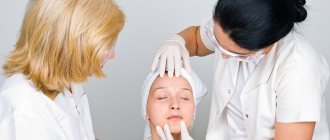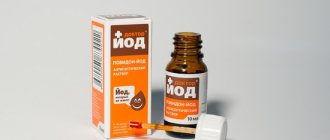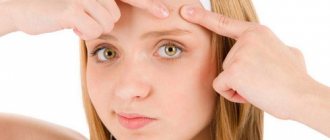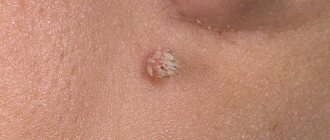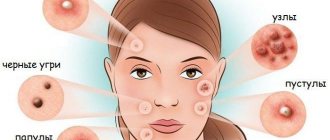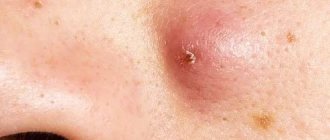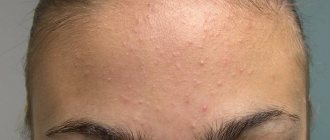Now there is a huge number of different products for acne - from all kinds of foams and gels, to emulsions, peelings and tonics. You need to approach their choice wisely and take into account the individual characteristics of the skin, and at the same time select a product that will delight you with its value. But finding one is quite difficult - you need to spend more time studying the substances that usually appear in cleansers, understand why and what is needed so as not to overpay and not buy into the tricks of marketers. But most people prefer to simply follow the advice of grandmothers and mothers, who often, among other things, offer laundry soap for acne.
In this article we will talk about whether this product can really help get rid of acne and talk about how it affects the skin. Let's say right away: there are both big advantages and big disadvantages. Therefore, read carefully to better understand whether this is right for you or not.
Does laundry soap help with acne on the face?
First, it’s worth finding out whether this remedy can really help in the treatment of acne. This type of soap differs from ordinary soap in its high content of alkali and fatty acids. And now a little history. Despite the misconception that it was supposedly invented by the Slavs, in fact it was originally made in France, and specifically in Marseille. That is why it is often called Marseille. Then olive oil and salt were added to the composition, but the laundry soap that we are used to using consists of animal fats and alkali. Of course, the recipe was initially changed for reasons of cheapness - it was difficult to find olive oil in Russia, and salt has always been considered a rather expensive product. But such a reduction in price really benefited it, in terms of antibacterial action.
Indeed, this remedy is credited with powerful antimicrobial properties. This is achieved precisely through the combination of alkali and fat. The fact is that alkali itself is a strong substance in terms of fighting bacteria. For example, ponds are often treated with it to disinfect and get rid of harmful microorganisms. Fats are always used in soap making because they are very effective in getting rid of other fats on the surface. For example, it is thanks to this that detergents wash greasy plates and so on so easily. In soap, this is necessary in order to more effectively get rid of sebum on the surface of the epidermis.
Now let's discuss in more detail whether it can help with acne. Theoretically, yes. The fact is that most pimples appear due to the fact that bacteria enter the skin and begin to multiply directly in the pores. Since laundry soap is credited with strong antibacterial properties, it can destroy colonies of microbes on the skin and, thus, dry out pimples. In addition, people with problem skin often complain about another problem - excess sebum, which is secreted by the epidermis. This is common for oily types. And any soap effectively washes away its excess and cleanses the skin in this way. But in fact, the same effect can be produced by any other product that has antibacterial and cleansing properties. It's just a matter of price. Homemade soap is very cheap.
Since it is produced from alkali and animal fat, there are simply no special production costs and cannot be. These components are considered almost the cheapest. This is roughly why you can buy it for literally pennies. More professional products use many substances, which are both more expensive and more complex. Special gels, foams and acne scrubs use salicylic acid, vegetable fats (sometimes cheaper synthetic substances that are not fats), auxiliary elements that protect the epidermis from excessive exposure. All these products are hypoallergenic. And manufacturers of laundry soap, of course, don’t worry about all this. Their task is to make a cheap and technically working product. However, this may come at the expense of his safety.
The fact is that its effectiveness in treating acne has not been proven, but it is quite harmful to the skin. We will talk about this in more detail in the next section, but for now we will go over only the most basic aspects of harm. For starters, it is very drying to the skin and is not guaranteed to be hypoallergenic. It does not contain any components that would soften its effect. Therefore, it is not clear whether there will be more benefit or harm when using it. Now we will explain in more detail.
Chemical composition
Why does regularly washing your face with laundry soap eliminate acne, oily shine, and clean pores? The answer to this question must be sought in its chemical composition.
- Animal fats
Animal fats are used in the production of this soap. They ensure normal functioning of skin cells. They form a durable film on the surface of the face that has protective properties (reflects attacks in the form of ultraviolet radiation). They are a real salvation for dry, damaged, thin skin.
But for oily skin types, they are not very useful, as they can further clog the pores with sebaceous plugs and provoke the appearance of an unhealthy shine on the face.
- Sodium
Granular sodium is a caustic and alkaline chemical element. It causes undoubted harm to the skin, destroying the structure of cells. It may become dull, gray, or thin. But don’t panic and immediately stop using soap: this effect is observed only with its constant use in large quantities.
- Water
Water is a required ingredient. It effectively moisturizes and neutralizes harmful components (the same as alkalis) in the composition of this product. Minimizes their aggressive action.
- Kaolin
Unlike old, Soviet soap, modern household soap manufacturers add kaolin, which softens the effect of alkalis. This is white (porcelain) clay, which restores damage, promotes rapid tissue regeneration, moisturizes, and controls the amount of secretions from the sebaceous glands. Its beneficial cosmetic properties can be listed endlessly. Please remember that this substance is not present in all varieties of the product.
- Fatty acid
Fatty acids are excellent antioxidants with pronounced regenerating properties. They contribute to the rapid healing of wounds. They are also responsible for cell renewal, which ultimately leads to rejuvenation and smoothing of wrinkles.
- Alkalis
But alkaline compounds destroy the structure of cells, and it is because of them that an avalanche of criticism falls on laundry soap as a cosmetic product. But in order to dry out and ruin your facial skin, you need a lot of alkali. And here their share is minimal. It is much better to see the benefits in them: they expand the pores, opening the way for nutrients (fatty acids, kaolin, etc.), performing a transport function.
The harmful effects of alkalis can be neutralized if, after using household soap, you rinse with an infusion of herbs, which acts in the opposite direction - to close pores and restore damaged cell structures.
A very important point, which often becomes a significant disadvantage of laundry soap. Because of this, the skin of the face can become very dry after washing and masks, microcracks may appear and even form - this is a high pH level. This indicator should be within 7 (this is the maximum). The best numbers: pH = 5 or 6. And in household soap it sometimes reaches critical levels of 11 and even 12.
Each ingredient performs a number of different functions. Together they all have a comprehensive antibacterial and disinfectant effect. This leads to the results that many admire when regularly using this product for washing.
Through the pages of history.
It turns out that laundry soap is French in its true origin. It was first produced in the Middle Ages in Marseille. True, its main ingredient at that time was olive oil: Louis XIV prohibited the use of animal fats in its composition.
When should you not wash your face with laundry soap for acne?
As we already said, sometimes it can be harmful to our skin. The point here is not only that it is not hypoallergenic. The likelihood of developing a serious allergy just because of animal fat or alkali is minimal, but there are real facts. It is these that we will consider, arguing the question of why laundry soap can be harmful and how such harm can be avoided. Therefore, we will take a closer look at the composition of this product. As we have already said, it consists of alkali and animal fats. Let's look at everything in order.
In the Great Medical Endiclopedia, alkali is considered dangerous for the skin. Here's what it says about the effect of these substances on human skin:
Alkalies have a sharp irritating and cauterizing effect on the skin and mucous membranes.
They penetrate into tissues, dehydrate them, saponify fats, and form alkaline albuminates with proteins, causing liquefaction necrosis. When contact with the skin, alkalis cause burns, the healing of which takes longer than in the case of exposure to acids, since deeper tissues are involved in the process. With constant contact of alkali with the skin, the development of nodular dermatitis, the appearance of painful, long-term non-healing ulcers (such as “bird's eyes”), and eczema are possible. The skin becomes dry, cracks form between the fingers, nails become thinner, break, become deformed, and separate from the nail bed. Stopping contact with alkali leads to rapid recovery. Source
But don't be scared right away. The fact is that the Encyclopedia only talks about alkali solutions, which are more concentrated than ordinary laundry soap. Of course, it is not as harmful to our skin. However, even this amount of this substance can cause not the most pleasant consequences. After using the soap, users report itching, redness and sharp pain on the surface of the skin, like a burn. This is observed in people with a dry and sensitive type of epidermis, who are less protected from the negative effects of the environment. Also, the same result was noticed with constant use of laundry soap.
As for animal fats, they are widely used in the manufacture of detergents and soaps, so we cannot talk about their direct harm. Of course, they have a less gentle effect on the epidermis than products using substitutes and fats of vegetable origin.
If you want to protect yourself, then you should adhere to the following rules for using laundry soap:
- Don't wash your face with it every day. It is better to adhere to a special frequency, alternating it with a milder cleanser. This way you will cause less potential harm to your skin, but will still benefit from the antimicrobial effect of the soap;
- After use, it is recommended to additionally cleanse the skin with tonic. This way you will wash off the remaining soap from the surface of the epidermis and prevent negative consequences;
- try to wash off the soap as quickly as possible, do not keep it on the skin for more than 2 minutes;
- Do not use laundry soap if you have dry, sensitive or combination skin. The product is more likely to damage it, since such an epidermis is less protected from negative external influences.
The benefits and harms of laundry soap
Laundry soap for the face is considered effective by most people due to its many beneficial properties:
- quickly cleans the surface of fabrics from all types of contaminants;
- stops inflammatory processes in the epidermis and thickness of the skin;
- perfectly disinfects abrasions and microtraumas;
- lightens areas of pigmentation;
- effectively cleans the surface of dead cells, opens pores and removes fat accumulations in them;
- prevents relapse of rashes.
However, with too frequent and uncontrolled use of the brown bar, instead of beneficial effects, people experience its negative properties:
- feeling of dryness and tightness of the skin;
- increased irritation of the epidermis, its peeling;
- increased fragility of cells, their fragility;
- a decrease in the skin’s own protective properties - the appearance of a tendency to inflammation and allergic rashes;
- appearance of rosacea network.
Recipe for a mask with laundry soap for acne
As we have already said, this product cannot be used daily, as it is very dangerous for healthy areas of the skin. But what about people who suffer from severe acne, and with this approach they simply do not feel the desired effect? We recommend using a special mask that is designed to be applied only to pimples. So, soap will not damage healthy skin, but it will dry out acne perfectly.
A recipe for a very simple mask made from this product is now very popular on the Internet. Essentially, it consists only of soap, which makes it easy to prepare and without the need to purchase other ingredients. Its essence is as follows:
- grate a piece of laundry soap using the middle holes;
- add a little water to the resulting mass and stir until you end up with a consistency similar to gruel;
- apply it to each pimple very locally, without touching healthy areas of the skin;
- wash off after 15 minutes.
The mask should be used no more than once a week.
If you feel burning, itching or other unpleasant sensations after applying the mask to your skin, wash it off immediately. This may indicate that your epidermis reacts poorly to this remedy. It is for this reason that it is worth pre-testing any product on other areas of the skin, for example, on the hand or the inside of the elbow.
